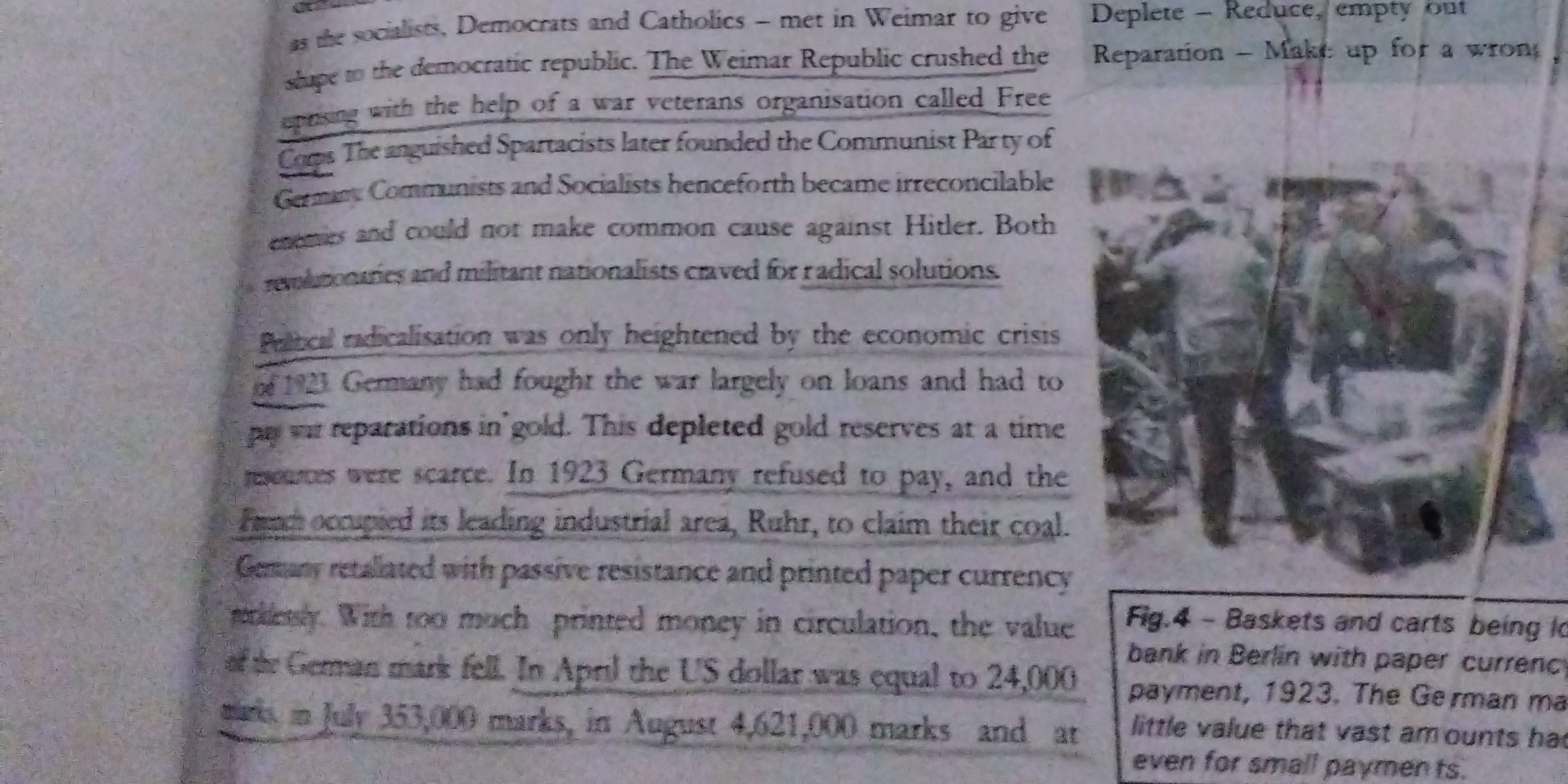What were the economic conditions in Germany in 1923 that affected its ability to pay reparations?

Understand the Problem
The text is discussing the economic and political situation in Germany in 1923, particularly the issues related to war reparations and monetary crisis. It details how Germany's financial difficulties led to inflation and the value loss of its currency, making it difficult to pay reparations.
Answer
Germany faced hyperinflation in 1923, worsening its inability to pay reparations.
Germany faced hyperinflation in 1923, with the value of the mark plummeting due to excessive money printing. This was partly triggered by reparation payments required in gold, depleting reserves. When Germany defaulted, France occupied the Ruhr, worsening the crisis and halting reparations.
Answer for screen readers
Germany faced hyperinflation in 1923, with the value of the mark plummeting due to excessive money printing. This was partly triggered by reparation payments required in gold, depleting reserves. When Germany defaulted, France occupied the Ruhr, worsening the crisis and halting reparations.
More Information
The hyperinflation crisis in Germany significantly lowered the purchasing power of its currency, and the occupation of the Ruhr by France further crippled its economy, leading to increased instability.
Tips
A common mistake is not connecting the hyperinflation directly to reparations, failing to see how international pressure exacerbated the crisis.
Sources
- Hyperinflation in the Weimar Republic - britannica.com
- The hyperinflation crisis, 1923 - BBC - bbc.co.uk
- Commanding Heights : The German Hyperinflation, 1923 | PBS - pbs.org
AI-generated content may contain errors. Please verify critical information